
In a recent study, investigators characterized an exonic GGC repeat in ZFHX3 associated with spinocerebellar ataxia type 4 in the original pedigree in which linkage was characterized over 25 years ago.

In a recent study, investigators characterized an exonic GGC repeat in ZFHX3 associated with spinocerebellar ataxia type 4 in the original pedigree in which linkage was characterized over 25 years ago.

The strong association observed at APOE in this analysis was consistent with observations from other amyloid-lowering therapies, which also found an elevated incidence of ARIA among APOE ε4 carriers.
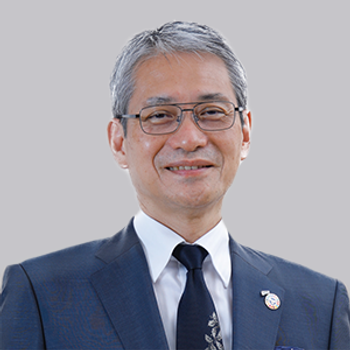
The dihydroergotamine product’s application was supported by phase 1 comparative pharmacokinetic and safety data, and the phase 3 ASCEND trial.

PARADIGM, an ongoing phase 2 placebo-controlled trial, will have additional biomarker data released in the first half of 2024.

Investigators identified practical guidelines for NMOSD management, emphasizing patient communication and targeted therapies, while providing recommendations for personalized approaches.

The head of Patient Engagement, Epilepsy and Rare Syndromes (Europe) at UCB Pharma discussed findings from a literature review presented at AES 2023 involving conversations about sudden unexpected death in epilepsy. [WATCH TIME: 4 minutes]

The medical director of the Inpatient Rehabilitation Unit at Ascension Genesys Hospital explored the various interventions for managing spasticity after stroke, from stretching exercises to surgical procedures. [WATCH TIME: 3 minutes]

The director of NYU Langone’s Comprehensive Epilepsy Center provided perspective on recently published data evaluating the potential mechanisms of sudden deaths in toddlers.
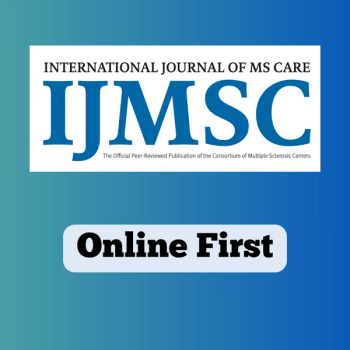
Here's the latest multidisciplinary MS research published online first in the International Journal of MS Care.

Aruna Bio's investigational treatment, AB126, is now set for a phase 1b/2a clinical trial targeting acute ischemic stroke, anticipated to begin in the first half of 2024.

Takeda's Hyqvia is the only FDA-approved combination of immunoglobulin and hyaluronidase, which makes it a facilitated subcutaneous immunoglobulin infusion, for patients with chronic inflammatory demyelinating polyneuropathy.

The system vice chair for the department of neurology at Allegheny Health Network talked about the growing evidence emphasizing the need for a more holistic approach to patient care in migraine. [WATCH TIME: 4 minutes]

The newly FDA-approved AI-powered software platform BrainSee utilizes brain MRI and cognitive assessments to reportedly predict the progression of amnestic mild cognitive impairment to Alzheimer disease in 5 years.

A recent open-label study focused on vagus nerve stimulation therapy's effects on patients with narcolepsy revealed a specific and notable improvement in daytime sleepiness.

Despite lack of efficacy in the phase 3 ADORE trial, the oral formulation of edaravone demonstrated safety and tolerability during a 48-week daily dosing period.
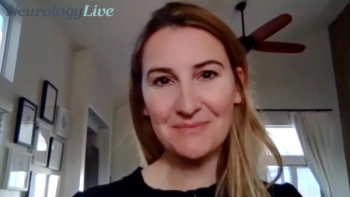
The clinical director of Parkinson & Movement Disorder Alliance shared her thoughts on potential therapies to increase management care options for patients with Parkinson disease. [WATCH TIME: 5 minutes]

A phase 2 trial showed the effectiveness of a home-based, full-body movement exergaming program for Parkinson disease compared with control.
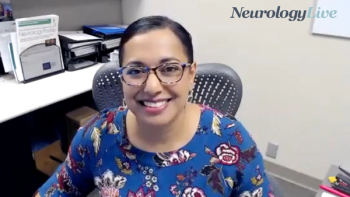
The associate professor in the department of neurology at Mayo Clinic College of Medicine talked about the importance of adopting a patient-centered approach in migraine treatment and the often overlooked impact of brain fog in patients with migraine. [WATCH TIME: 4 minutes]

Test your neurology knowledge with NeurologyLive®'s weekly quiz series, featuring questions on a variety of clinical and historical neurology topics. This week's topic is epilepsy and seizure disorders.

Using a sample of 350 pregnancies, the maintenance of natalizumab during pregnancy past the 30th week had both positive and negative impacts, suggesting a risk-benefit discussion may be needed before patients begin treatment.

The pediatric REVEAL trial assesses THSA-102 in 2 cohorts of pediatric patients with Rett syndrome due to MECP2 loss-of-function mutation, with results expected in mid-2024.
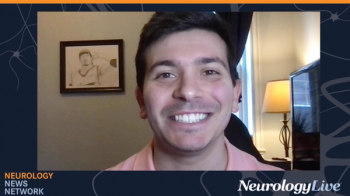
Neurology News Network for the week ending January 13, 2024. [WATCH TIME: 4 minutes]

Good functional outcome at 90 days was more prevalent among patients on argatroban plus antiplatelet therapy vs antiplatelet alone.

Take 5 minutes to catch up on NeurologyLive®'s highlights from the week ending January 12, 2024.

A case series highlighted the significance of using multimodal imaging, such as spectral domain OCT, in detecting ocular manifestations in SCA type 7.

Cala Health's transcutaneous afferent patterned stimulation demonstrated significant efficacy in patients with essential tremor, as evidenced by positive outcomes in multiple clinical studies.

The chief medical research officer and head of research at Aviv Clinics talked about the anticipation of long-term results on a randomized controlled trial assessing hyperbaric oxygen therapy, a treatment for long COVID. [WATCH TIME: 5 minutes]

Mind Moments®, a podcast from NeurologyLive®, brings you an interview with Cathleen Lutz, PhD. [LISTEN TIME: 18 minutes]

Brexpiprazole was generally well tolerated over 12 weeks in this vulnerable patient population, with documented efficacy that supported its approval in early 2023.

A recent analysis revealed patients with neuromyelitis optica spectrum disorder exhibited significantly lower vitamin D levels, suggesting a potential association with impaired immune tolerance in the disorder.